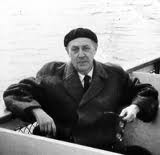“I believe in writing because the power of writing is greater than that of fate or time. The things we do, the things we desire, the things we love, the things we say, all pass away. Women pass, affairs pass. Time’s dust settles over all we have done, over everything that once excited us. But words remain.”
Escaping in 1756,  after sixteen months in a Venice jail, Giacomo Casanova, “all seven deadly sins in one accursed body,” arrives in Bolzano, where the Doge and the Inquisition cannot reach him. Seeing himself as “that rare creature, a writer with a life to write about,” he and a defrocked priest, Balbi, move into a hotel, not far from where the Duke of Parma and his young bride Francesca reside. Casanova was wounded by the duke in a duel over Francesca three years before and has promised never to see her again. When the Duke arrives at Casanova’s hotel with a letter from Francesca, asking to see him, the stage is set for the action and a surprising ending.
after sixteen months in a Venice jail, Giacomo Casanova, “all seven deadly sins in one accursed body,” arrives in Bolzano, where the Doge and the Inquisition cannot reach him. Seeing himself as “that rare creature, a writer with a life to write about,” he and a defrocked priest, Balbi, move into a hotel, not far from where the Duke of Parma and his young bride Francesca reside. Casanova was wounded by the duke in a duel over Francesca three years before and has promised never to see her again. When the Duke arrives at Casanova’s hotel with a letter from Francesca, asking to see him, the stage is set for the action and a surprising ending.
Originally published in Hungary in 1940, this is the second of Hungarian author Sandor Márai’s “lost masterpieces” to be “discovered” and published recently in English, and it bears some structural similarities to Embers, his previous novel. Like Embers, the action takes place largely in one room, where an assertive narrator comments on his life, his rationalizations for his actions, his beliefs, and his future. Observant of even the smallest details about people, the author is far more romantic in his descriptions here, as perhaps befits a novel about Casanova, piling up detail upon detail in a narrative which sounds, in places, almost like the grand chorus of an opera (with one incredible sentence consisting of over three hundred words).

As the author catalogues the response of the citizenry of Europe to news of Cazanova’s escape, the glories and cruelties of Venice, the enthusiastic reaction of the citizens of Bolzano to the “surgeries” Casanova holds each afternoon to discuss love, and the details of Casanova’s life, he sets the scene for the action which takes place in the second half of the novel. The arrival of the Duke of Parma in Casanova’s hotel room with Francesca’s letter, his “deconstruction” of the letter, and the solution the duke proposes to Casanova set up a morality tale in which Casanova must evaluate his life, his feelings for Francesca, and his definition of love.
Delightful to read and often witty, the novel raises thoughtful questions about love and responsibility, but in its details it is not so fully integrated as Embers. The story seems overloaded with heavy descriptions in the first half, lacking the action and, more importantly, the characters’ interactions which make the second half so enjoyable and the ironies of the ending so memorable.
Also reviewed here: EMBERS
